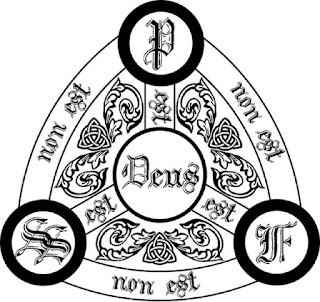What's in a Name?

This sermon was preached at Evensong on 27/09/15 where we celebrated Michaelmas - the feast of St Michael, to whom our church is dedicated. The readings were Daniel 10:4-end and Revelation 5 . Names have always been seen as important things. I’m sure you know the story of Rumpelstiltskin – whose name likely literally means ‘Noisy, Limping Imp’, who struck a ghoulish bargain with the fairy-tale queen that he would take her first-born son unless she could tell him his name. In our Christian and Jewish tradition, we hold much reverence over the name of God in particular – in Judaism, the name of God cannot be spoken or written, instead, the tetragrammaton – the four letters ‘YHWH’ – are used whenever the name of God needs to be invoked. Through the years, we have added vowels, to make the name ‘Yahweh’, or even ‘Jehovah’. In our bibles, the four letters will often be replaced by the way we now commonly refer to God – The LORD (often written in capital letters). God’s name is too...



